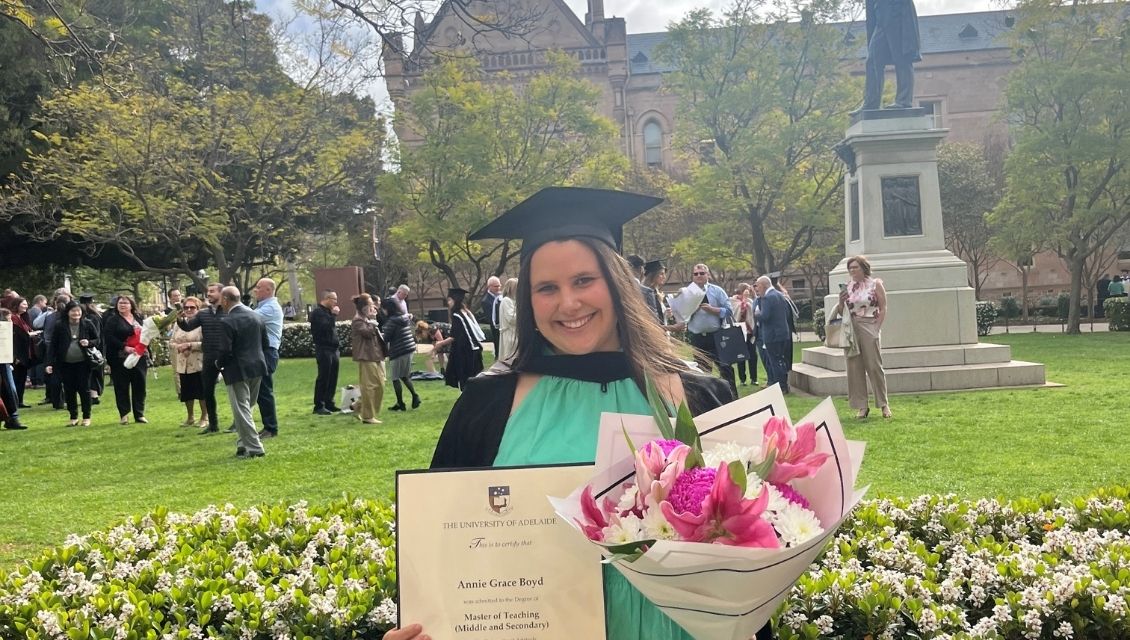
David Wallace was 18 years old and training to become a mechanic when he had a car accident that changed his life forever.
The crash left the 61-year-old a quadriplegic and facing the raft of challenges that such a major injury brings, not least of which being how to have a rewarding career.
But that is exactly what the IT specialist has done within the Business Improvement and Technology team in the Department of Human Services, embracing technology both within his job and his life and using his unique mindset to simply make things work.
Ask David exactly what he does within the DHS though and he struggles to answer because … well he does a lot.
“I suppose my role is a bit of a mishmash of lots of things,” he says.
“I’m a systems administrator, a platform manager, a website administrator, I code websites, I oversee the technical aspects of our site and offer support to other internal teams doing the content on the site.
“I suppose you would call me the technical manger of the websites for the department.
"I worked for years for DIRC (Disability Information Resource Centre) taking care of the IT needs and running a successful disability-themed computer bulletin board. That was great, but I’m proud that when that job ended I looked for a completely new role, and won a technical skilled position in the government. It's been a whole new challenge."
David's achievements within DHS include building a website ... in 48 hours.
"A few years ago, we had an out-of-the-blue, super-urgent request to build a website to align with a new department campaign," he says.
"Working with DHS colleagues, I pulled all the pieces together and launched the site in less than 48 hours.
"I think I was running on adrenaline the whole time! But we got it done and it was fully accessible, which was important to all of us."
David says he, working closely with the project manager and technical vendors, oversaw the development and implementation of the Adults Supporting Kids (ASK) website in 2021 which has had three phases so far, including incorporating a live chat feature, and manages 13 websites across the DHS's business units.
"During my time we have worked with an expanding focus on inclusion and how that touches online digital accessibility," he says.
"Continuous learning about online accessibility and the ways we can incorporate that into our sites means that accessibility on DHS websites is now averaging 97 per cent. That is 9 per cent above industry average."
David says the same love of problem solving that made him want to become a motor mechanic has served him well in his IT career.
“I like to understand how things hold together, and there’s been a lot of experimenting around finding out how things work so I can diagnose the problem,” he says.
Tinkering under the bonnet, if you like.
And these problem solving skills were put to good use after David’s accident as he taught himself to use emerging technology in the days before adaptive tools were widely available.
“Initially it was about working out how I could continue to study,” David says.
“But then it became about what I could use to do that. We’re talking about the very early days – I bought one of the first Macs in the country in 1984, and went from there. It’s always been about tools I could use, and technology is just a tool.”
David and some friends modified a gaming trackball and adapted it to his Mac, allowing him to use his computer far more easily.
“For many years prior to that I was poking a mouse around with my stick (held in his mouth). Of course the cord would go everywhere,” he says.
“As technology progressed I found ways of making it work for me, or ways of adapting it so it could.”
And while David is comfortable making the technology work for him, there are plenty of times where the simplest option is still the best.
“The highest tech isn’t necessarily the best – my sticks (which David holds in his mouth to type with) are just pieces of plastic I make up myself,” he says.
“And the holders I keep them in are (car engine) pistons, turned upside down. I’ve used them for decades because I needed something that could hold lots of things that was heavy at the base and I’m yet to find anything better.”
And David’s efforts to make technology work for him over the years made him uniquely prepared for the Covid pandemic in 2020.
“Suddenly everyone was on my level,” he laughs.
“After working to be included in the workplace at a physical level, suddenly everyone was virtual and they got to know my world.
“And the fact that that has continued has been great – the whole acceptance of integrating the virtual into the physical space since Covid has actually made the workplace much more inclusive for me.”






